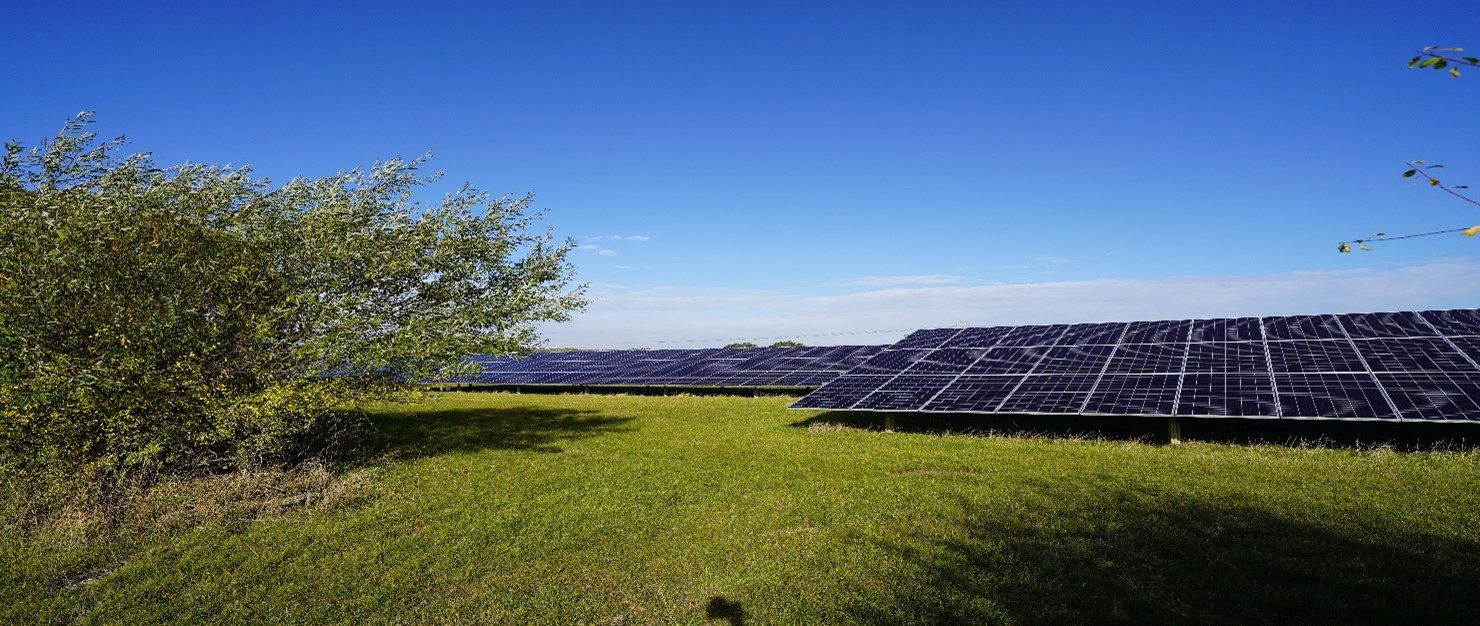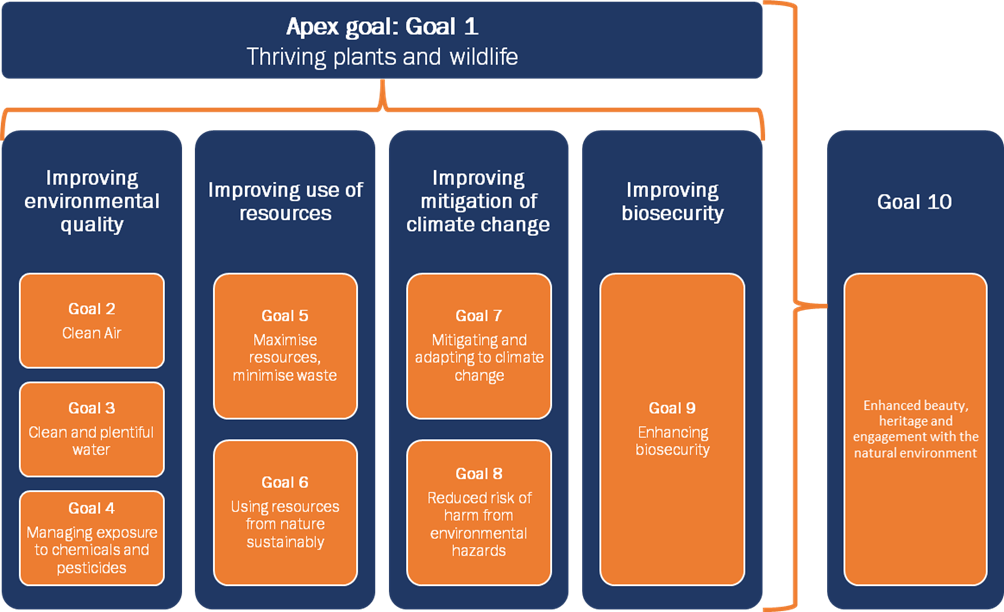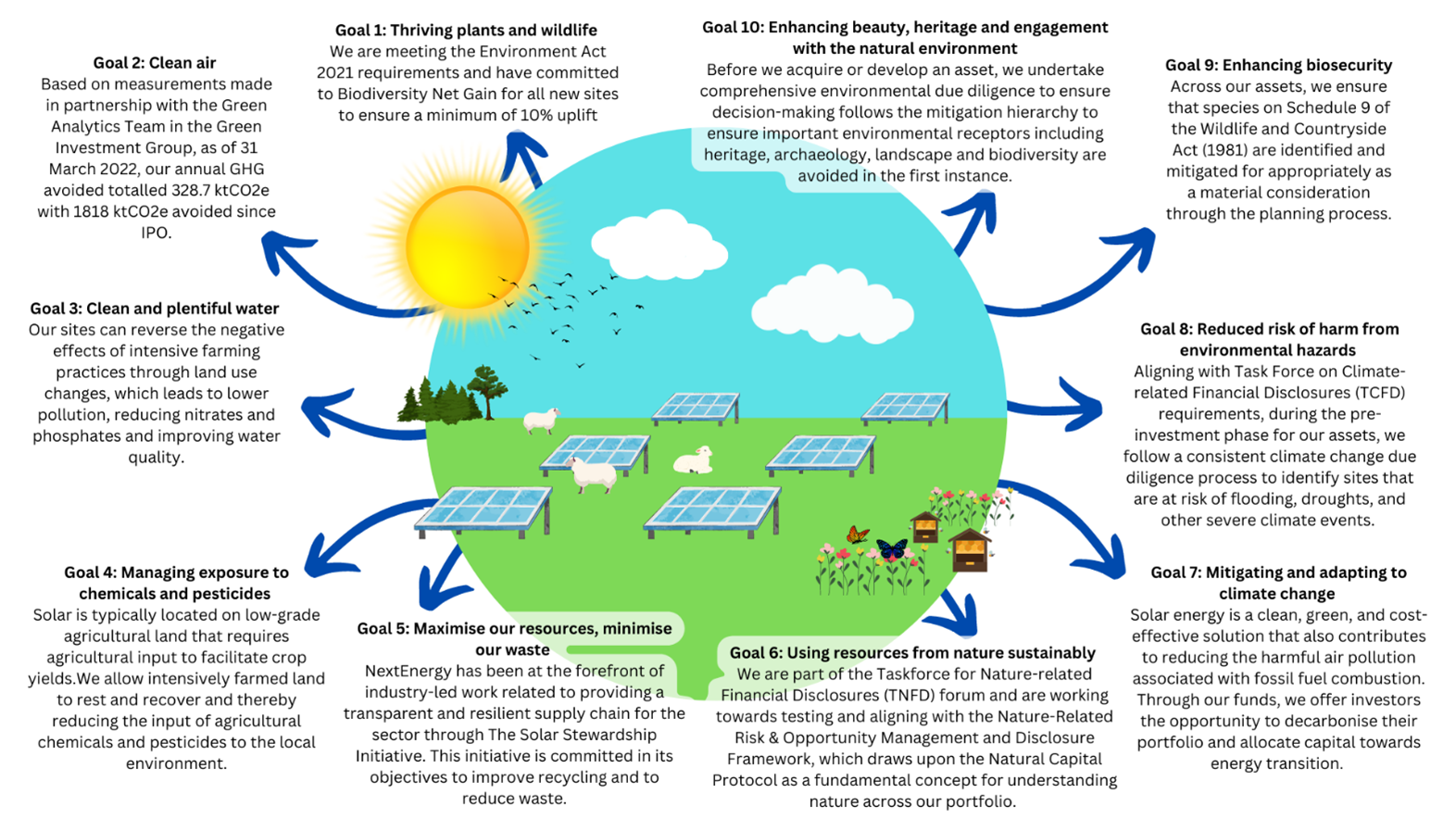Date 21 February 2022
“We are developing a Biodiversity Strategy, which will seek to establish a baseline from which we can build solid foundations, collate comprehensive reliable data, implement strong governance, accountability and will provide a robust delivery framework that will span across our portfolio and individual assets.”
Written by:
Hing Kin Lee, Environmental Impact Manager, NextEnergy Capital

NextEnergy Solar Fund (NESF) is an Article 9 fund under the EU SFDR classifications, with a sustainable investment objective at its core. NESF delivers environmental and social value from its operating portfolio through its specialist solar investment manager and advisor, NextEnergy Capital. As well as playing an important role in developing solutions that address climate change, NESF solar plays an important role in supporting UK’s journey on environmental improvement.
The 25 Year Plan to Improve the Environment (A Green Future) (25 YEP) was first published in January 2018. This set out the UK government’s roadmap for action towards a cleaner and greener future for the nation. At the end of January 2023, the government released its Environmental Improvement Plan 2023 (EIP23), labelled as the First revision of the 25 Year Environment Plan[1].
The EIP sets out a framework for action with an overarching ‘Apex goal’ to halt and reverse the decline in nature in the UK (to achieve thriving plants and wildlife). As well as the 25 YEP, the EIP23 builds on the Environment Act 2021 and provides a detailed delivery plan, with policy actions, that supports ten complimentary environmental goals:

There are challenges to ensure policy and legislation are strengthened to encourage, incentivise, and direct private investment into nature. But it is positive that EIP23 acknowledges nature being pivotal in the equation. It is widely recognised that biodiversity underpins natural capital and the ecosystem goods and services that flow from them[2]. NextEnergy Capital recognises the importance of biodiversity in the context of ecosystem services[3], but also by way of the interconnected relationships with climate change and human rights. These form the three pillars of our sustainable investment policy[4], which recognises that our role in society goes beyond increasing access to clean energy. As such, we aim to address environmental and social challenges through sustainable investment activities. EIP23 enables us to focus on meaningful and positive changes in how we operate so that we do not shy away from driving forward our own environmental ambitions.
The goals of EIP23 are directly supported by NESF projects. These tie together as part of our own cross-cutting work on the environment, and in turn support the delivery of EIP23’s environmental targets and commitments.

As well as the provision of clean energy, and the reduction in fossil fuel use solar provides, our sites deliver other social benefits. For example, we fund locally beneficial and inclusive projects, including an outreach program with local schools, a community project with the technology platform BizGive, children’s play areas, outdoor learning centres and community lighting schemes.
As managers of solar infrastructure, we realise that we are also custodians of land. We take this responsibility seriously, and our work focuses on unlocking the natural capital potential across our solar generation portfolio. We go over and above planning obligations, through the delivery and implementation of ecological enhancements, habitat management, and sensitive agrivoltaic solutions. As part of one initiative that provided new habitat features to benefit native pollinators, NESF teamed up with Buglife to support their B-Lines project across the UK. This involved the establishment of a series of ‘insect pathways’ alongside our designated solar farms. These act as wildflower-rich habitat stepping stones, linking existing wildlife areas together to create a network across the British landscape.
The Environment Act (2021) represents a significant piece of legislation that will facilitate the delivery of EIP23. It sets out statutory targets that also support the 2050 Vision for Biodiversity as part of the Global Biodiversity Framework[5]. This will help NextEnergy Capital to fine-tune our approach, and to ensure that the environment continues to be at the centre of our decision-making. This includes developing tangible plans that are tailored to deliver on the goals of EIP23. For progress to be quantitively measured, the next steps on our journey will be to prioritise our environmental commitments towards those of EIP23 and to develop our own indicator framework and science-based targets to quantitively monitor and report on environmental change.
We are developing a Biodiversity Strategy, which will seek to establish a baseline from which we can build solid foundations, collate comprehensive reliable data, implement strong governance, accountability and will provide a robust delivery framework that will span across our portfolio and individual assets.
Our approach will also focus on increasing the use of natural capital to identify, measure and value impacts and dependencies so that we better understand how we interface with nature and manage associated risks and opportunities. We will continue to embed nature and natural capital into all our work, to ensure we prioritise our actions and contribute effectively towards achieving the Apex goal.
~ End ~
Footnotes
[1] https://assets.publishing.service.gov.uk/government/uploads/system/uploads/attachment_data/file/1133967/environmental-improvement-plan-2023.pdf
[2] https://www.cbd.int/health/
[3] https://www.nextenergysolarfund.com/esg-biodiversity-naturalcapitalseries/
[4] https://www.nextenergycapital.com/sustainability/sustainable-investing/
[5] https://prod.drupal.www.infra.cbd.int/sites/default/files/2022-12/221222-CBD-PressRelease-COP15-Final.pdf
